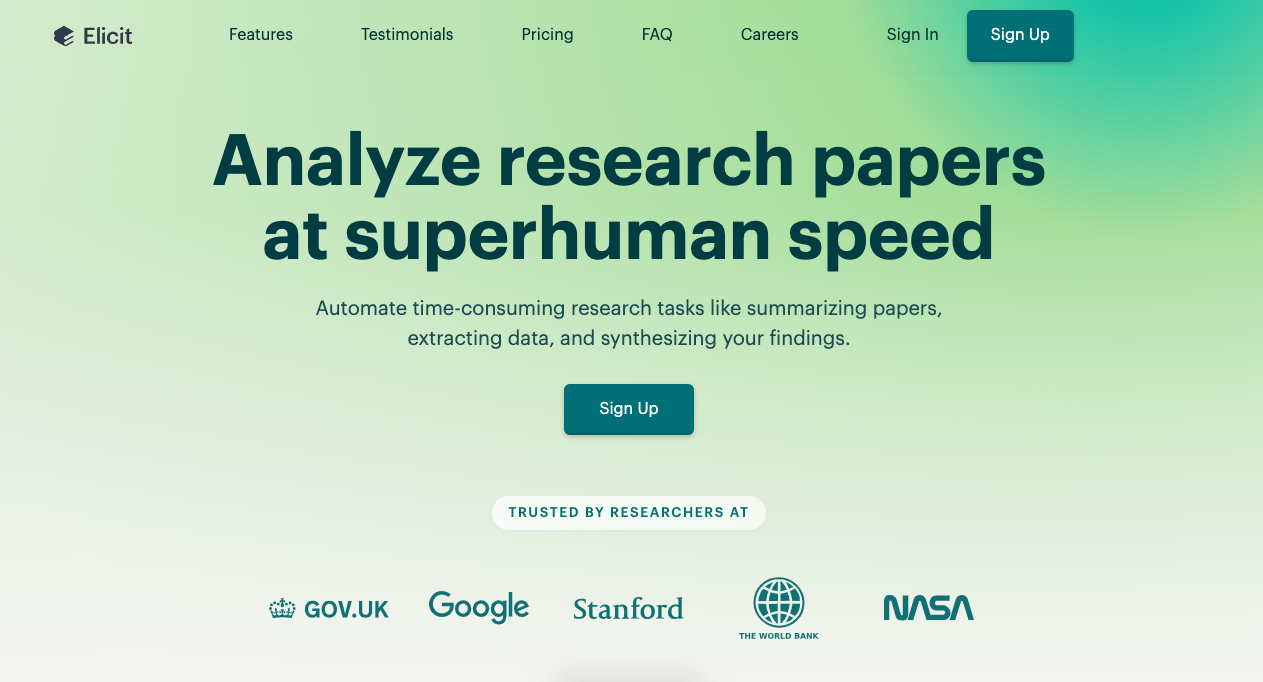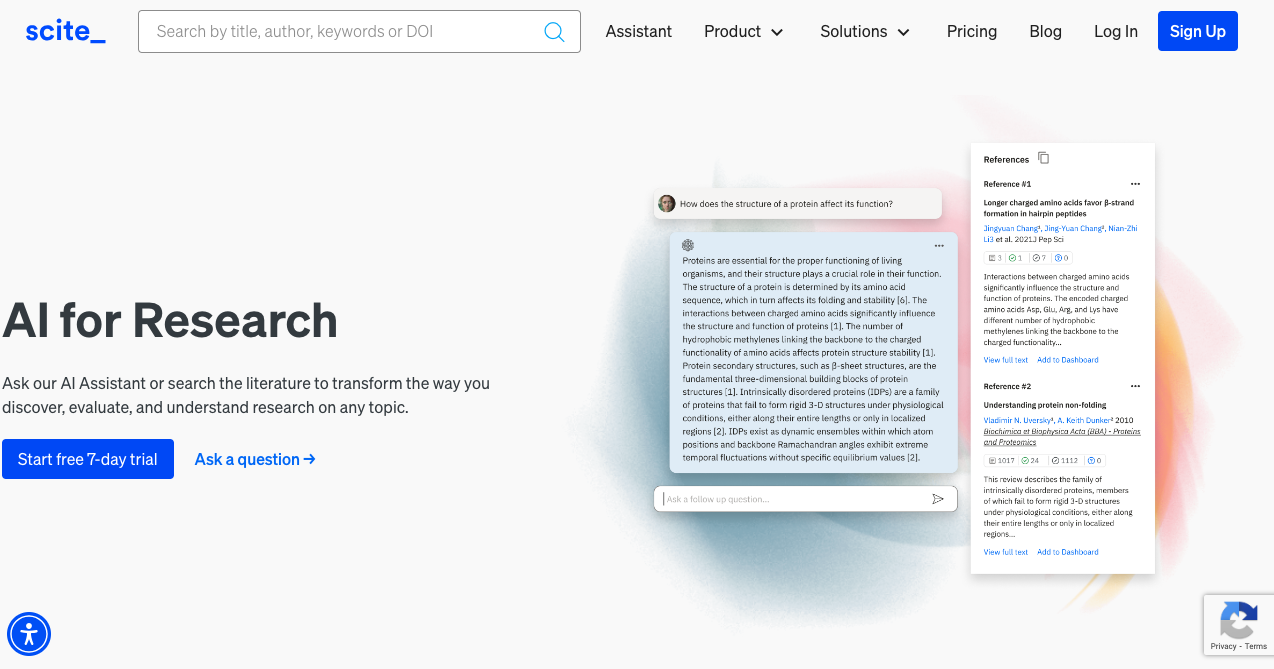Top Scientific Research AI Tools
Scientific research drives innovation and expands our understanding, but managing complex data and keeping up with advancements can be overwhelming. AI is transforming research by automating tasks, analyzing data, and uncovering new insights faster. This page highlights AI-powered tools that help scientists accelerate discovery, collaborate efficiently, and push the boundaries of knowledge. AI simplifies experiments, identifies patterns, and generates valuable insights, making research more efficient and impactful.
Why are AI-powered tools essential for modern scientific research?
- Accelerated Data Analysis: AI processes large datasets quickly, identifying patterns, trends, and anomalies that might be overlooked, speeding up research and allowing scientists to focus on insights.
- Hypothesis Generation: AI can propose new hypotheses based on existing data, offering researchers fresh directions for exploration and potential breakthroughs.
- Automated Experiment Design: Some AI tools optimize experiment parameters and predict outcomes, improving efficiency and reducing trial and error.
- Enhanced Collaboration: AI-powered platforms enable researchers to share data, discuss findings, and collaborate more effectively on projects.
- Improved Literature Review: AI automates literature reviews by finding relevant articles and extracting key information, saving time and effort.
- Personalized Research Assistance: AI tailors recommendations based on a researcher's interests, suggesting relevant articles, datasets, and collaborators.
- Reproducibility and Transparency: AI enhances research integrity by automating data analysis and ensuring processes are well documented and traceable.
AI is revolutionizing scientific research by enabling machine learning to uncover complex relationships and make predictions, opening new avenues for discovery. Natural Language Processing (NLP) analyzes scientific literature, extracts key information, and identifies research trends. Computer vision enhances image analysis from experiments and simulations, providing insights that would be difficult to obtain manually.
AI isn't replacing scientists; it’s empowering them. By automating routine tasks, analyzing complex data, and generating hypotheses, AI allows researchers to focus on innovation and strategy. Explore the AI tools on this page to accelerate your research and drive groundbreaking discoveries.

